Los Angeles—Bliss! Kirtan Photos 1970
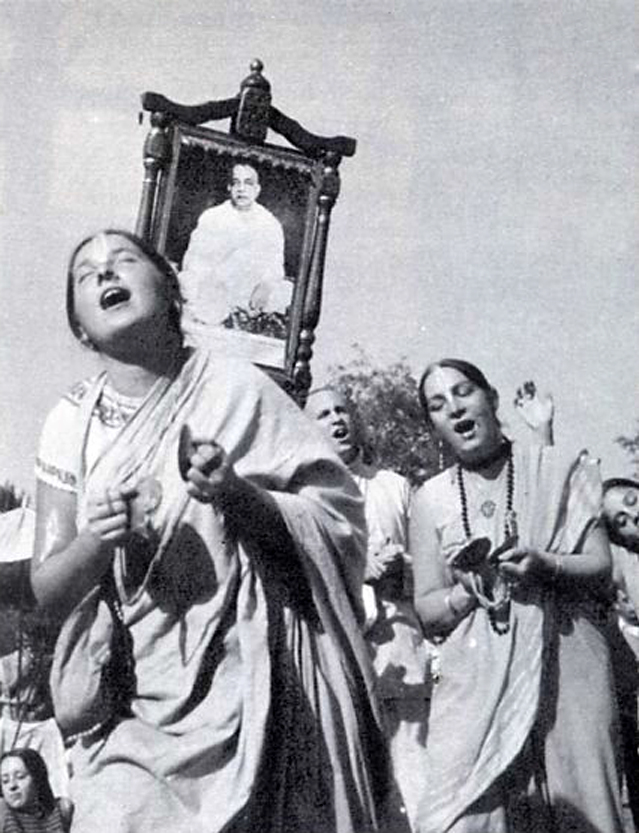
In the morning the L.A. sankirtana party chants and dances on the streets of downtown Los Angeles, and in the evening they go to the area of Hollywood Boulevard.
By BTG Editors on Chanting, ~Featured~

In the morning the L.A. sankirtana party chants and dances on the streets of downtown Los Angeles, and in the evening they go to the area of Hollywood Boulevard.
By BTG Editors on Chanting
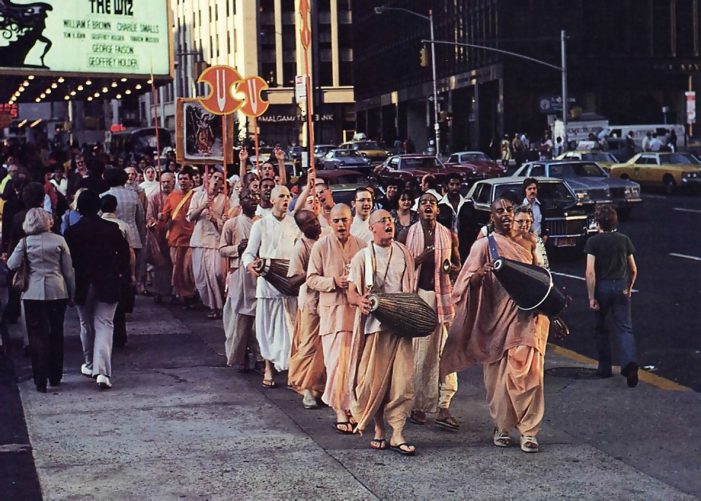
These sixteen words—Hare Krsna, Hare Krsna, Krsna Krsna, Hare Hare/ Hare Rama, Hare Rama, Rama Rama, Hare Hare—are especially meant for counteracting the ill effects of the present age of quarrel and anxiety.
By BTG Editors on Chanting
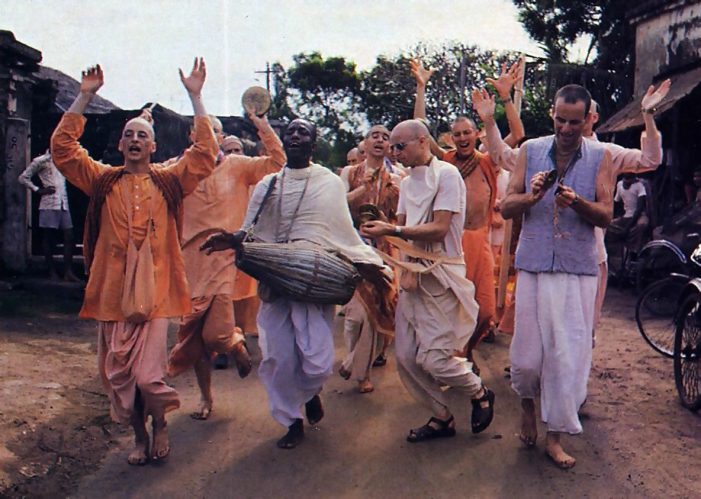
In Sanskrit, man means “mind” and tra means “freeing.” So a mantra is a combination of transcendental, spiritual sounds that frees our minds from the anxieties of life in the material world.
By BTG Editors on Chanting
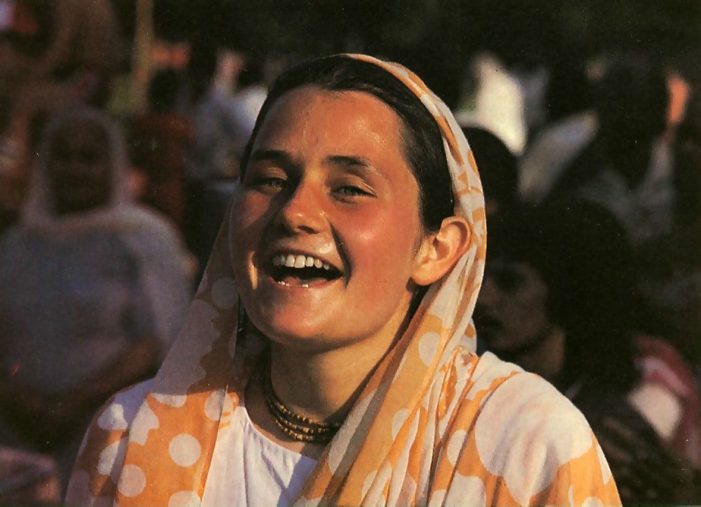
These sixteen words—Hare Krsna, Hare Krsna, Krsna Krsna, Hare Hare/ Hare Rama, Hare Rama, Rama Rama, Hare Hare—are especially meant for counteracting the ill effects of the present age of quarrel and anxiety.
By BTG Editors on Chanting, ~Featured~
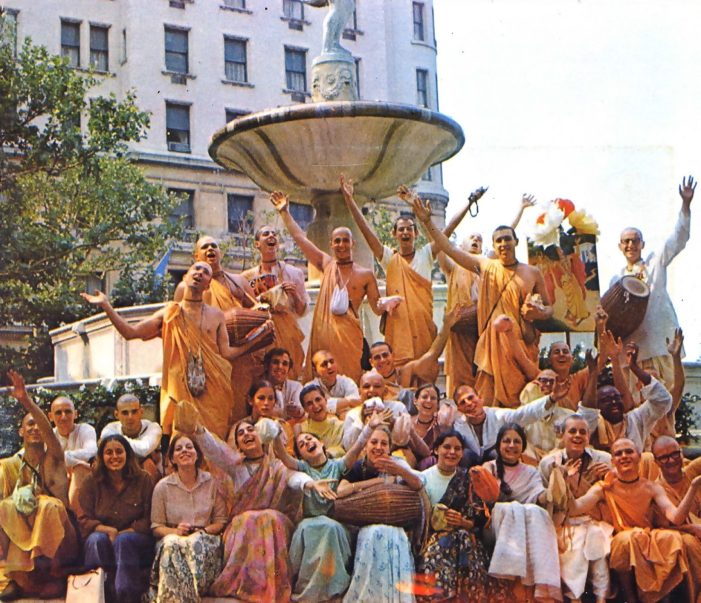
Many photos of ISKCON’s Sankirtan Party in New York City during 1969.
By Satsvarupa dasa Gosvami on Chanting
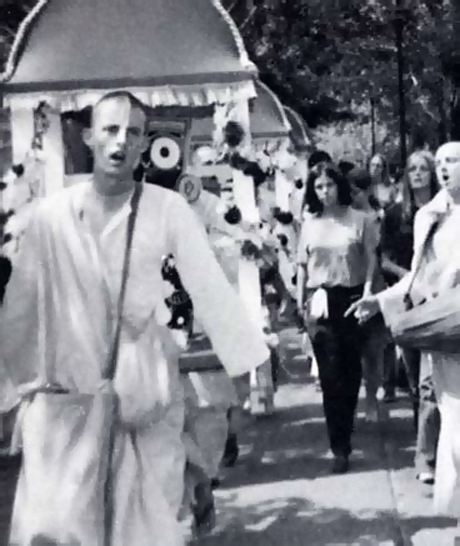
I think you should try to always have Samkirtan going on. All other things are subsidiary. This chanting is our life and soul, so we must arrange our program so that there will be as much chanting on the streets and at college engagements as possible.
By BTG Editors on Chanting
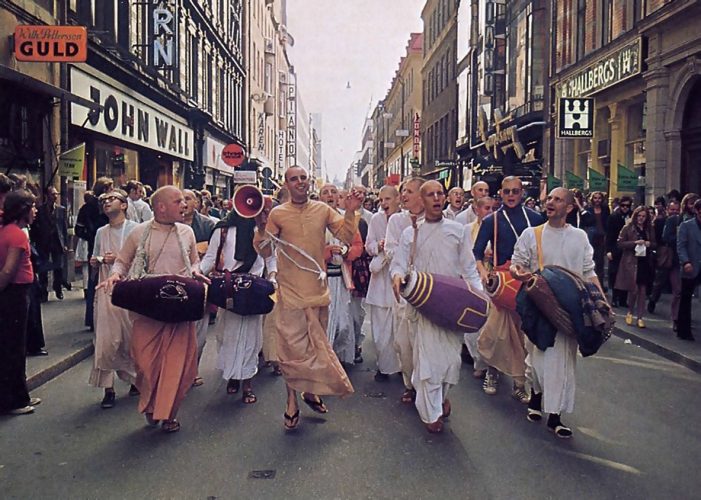
The maha-mantra means, “O all-attractive, all-pleasing Lord, O energy of the Lord, please engage me in Your devotional service.” Chant the Hare Krsna maha-mantra, and your life will be sublime.
By Damodara dasa on Chanting, ~Featured~
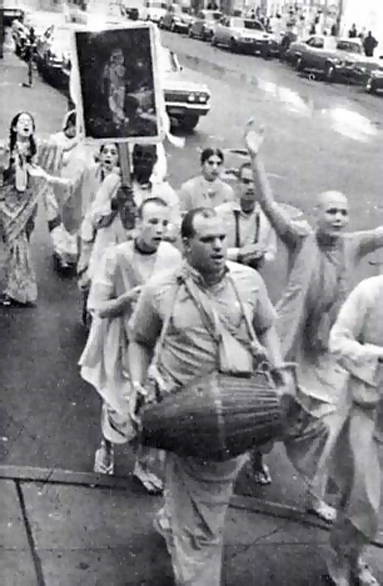
The Samkirtan Party chanted with relaxed bliss, vibrating Krishna’s Holy Names as the TV crew wound around them with cables and microphone cords, straining to record the bliss of Lord Chaitanya’s movement.
By BTG Editors on Chanting
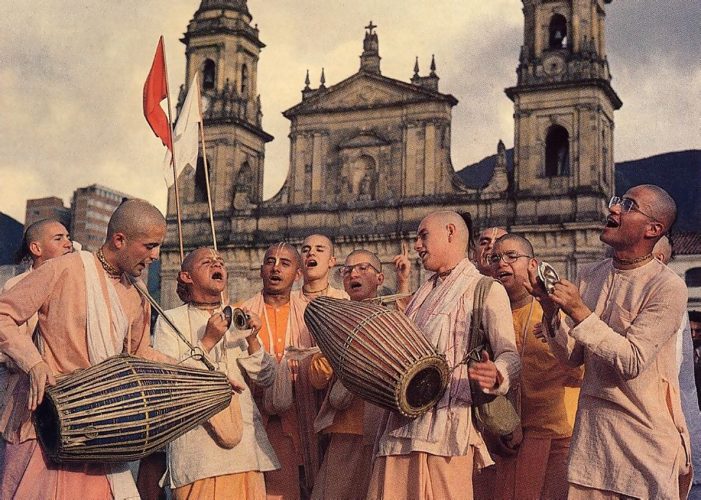
Five centuries ago, while spreading the maha-mantra throughout the Indian subcontinent, Sri Caitanya Mahaprabhu prayed, “O Supreme Personality of Godhead, in Your holy name You have invested all Your transcendental energies.
By Madhudvisa dasa on Chanting
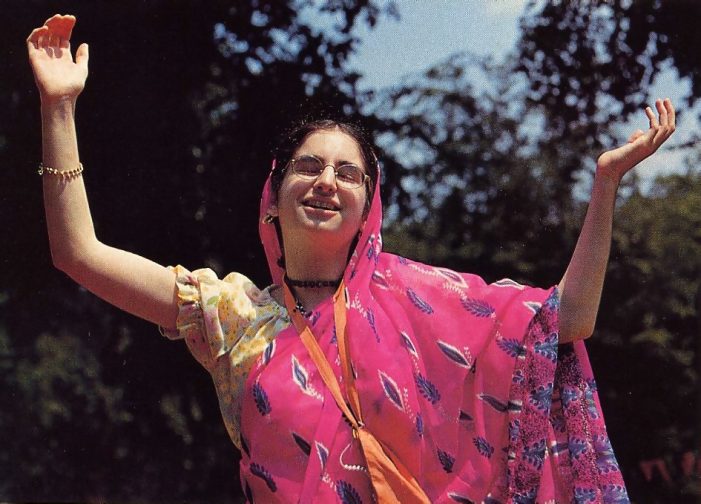
Krsna means “the all-attractive one,” and Rama means “the all-pleasing one,” and Hare is an address to the Lord’s devotional energy. So the maha-mantra means, “O all-attractive, all-pleasing Lord, O energy of the Lord, please engage me in Your devotional service.”
By Satsvarupa dasa Gosvami on Chanting
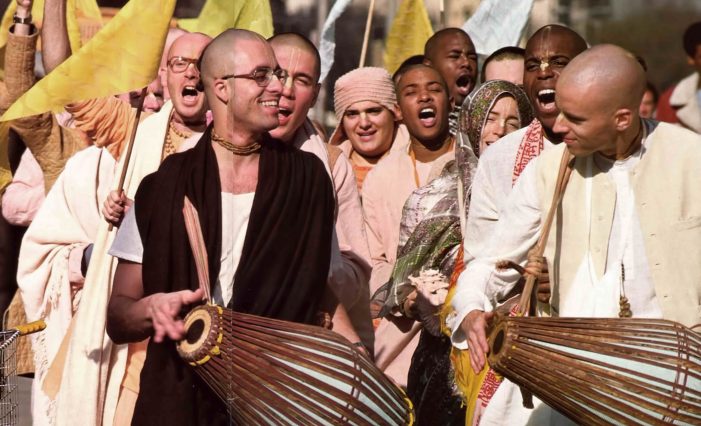
One Saturday night a woman stopped before our chanting party and shook her head in disbelief. Finally she exclaimed, “Only in Georgetown!” and walked off in shocked dismay.
By BTG Editors on Chanting
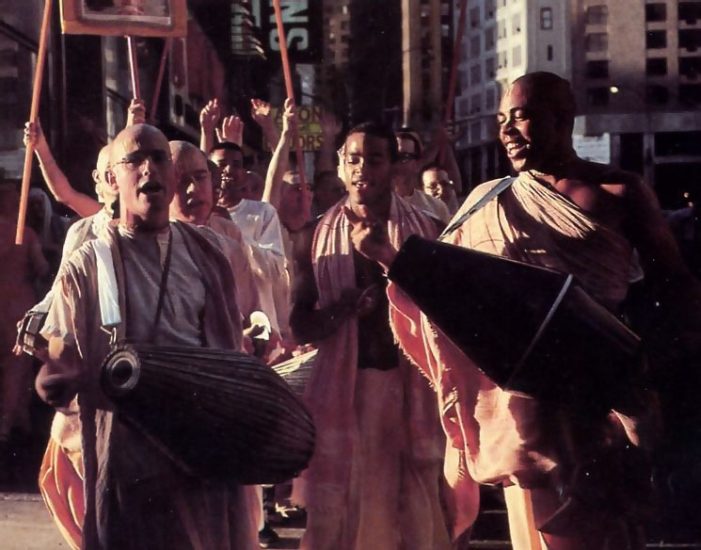
The name Krsna means “the all-attractive one,” the name Rama means “the all-pleasing one,” and the name Hare is an address to the Lord’s devotional energy. So the maha-mantra means, “O all-attractive, all-pleasing Lord, O energy of the Lord, please engage me in Your service.”
By Satyaraja dasa on Chanting, ~Featured~
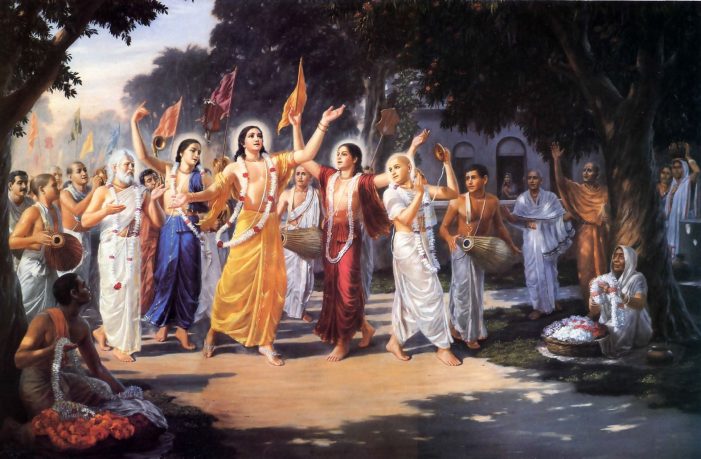
One can extricate himself from the bonds of material life by hearing and chanting transcendental sounds. The common, unenlightened person is in a sleeplike state, oblivious of his real nature as a spiritual being and of his relationship to the Supreme Being.
By BTG Editors on Chanting
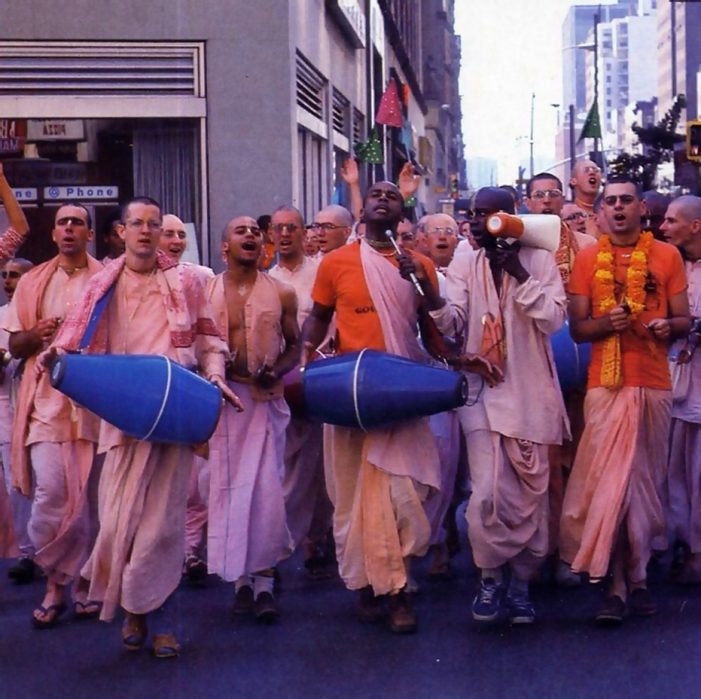
In Sanskrit, man means “mind” and tra means “freeing.” So a mantra is a combination of transcendental, spiritual sounds that frees our minds from the anxieties of life in the material world.
By BTG Editors on Chanting
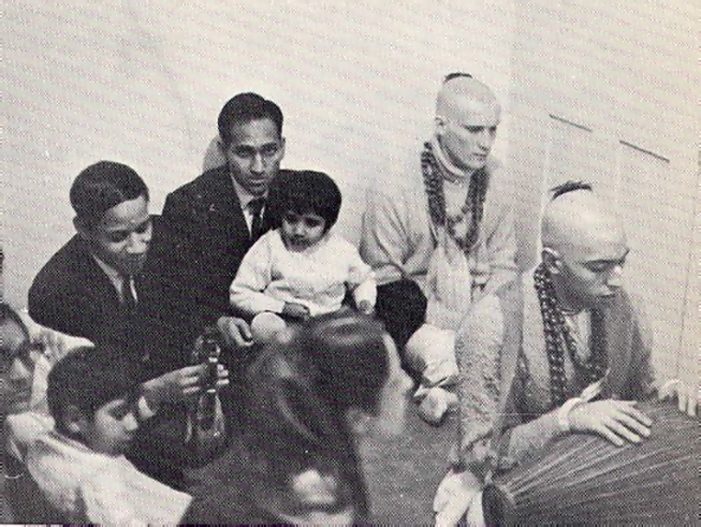
Transformed hippes clad in saffron robes…chanting the Hare Krishna Mantra”—so ran a recent story in the London Evening Standard.
By Dravida dasa on Chanting, ~Featured~
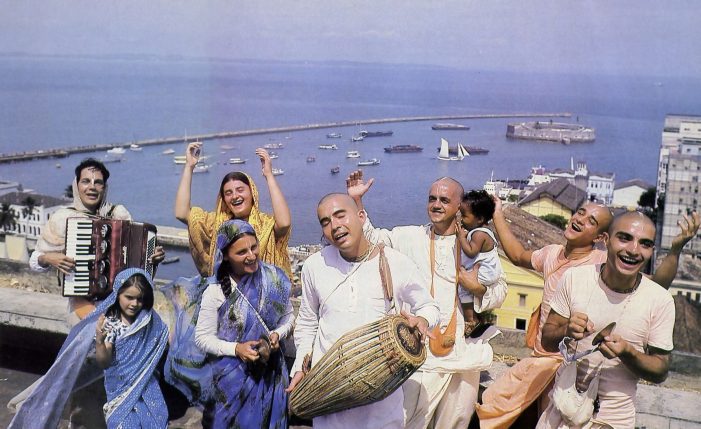
The chanting of God’s holy names quickly polishes the mirror of the mind and reveals both Him and ourselves. “The face is the index of the mind,” Prabhupada was fond of pointing out, he would often mention the bright faces of his disciples.
By Subhananda Dasa on Chanting, ~Featured~
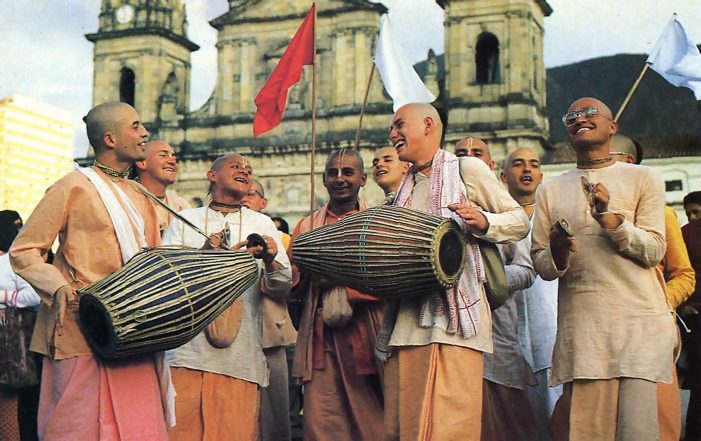
I do not know how much nectar the two syllables ‘Krs-na’ have produced. When the holy name of Krsna, is chanted, it appears to dance within the mouth. We then desire many, many mouths. When that name enters the holes of the ears, we desire many millions of ears.
By Madhudvisa dasa on Chanting
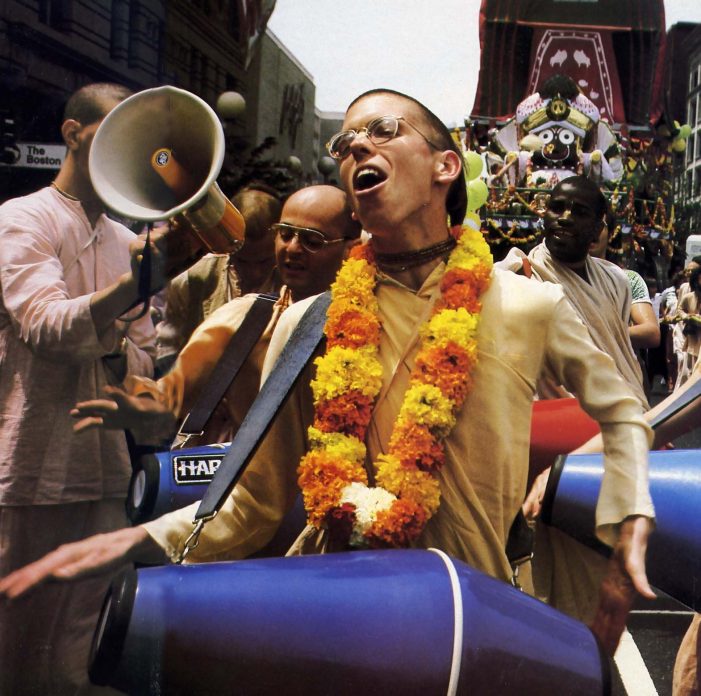
Among all the practices of the Hare Krsna movement, the most prominent is the public chanting of God’s names, ecstatic dancing, and playing of musical instruments—a spontaneous street liturgy common in most major cities throughout the world.
By Satsvarupa dasa Gosvami on Chanting
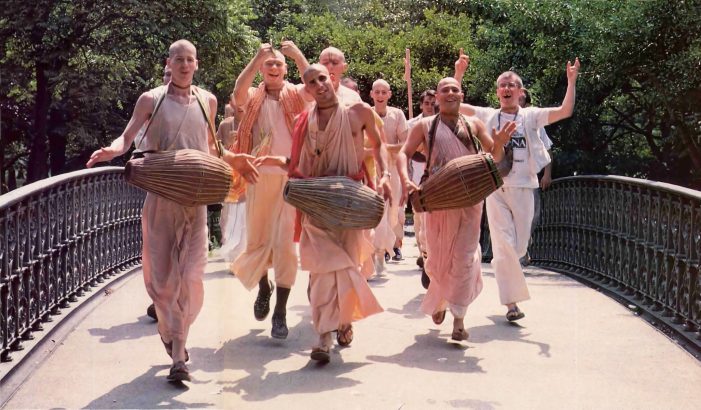
The Vedic literature explains the power of chanting God’s name in the story of Ajamila, a great sinner who at the time of his death called out the name of God and was immediately purified of all sinful contamination.
By Madhudvisa dasa on ~Featured~, Chanting
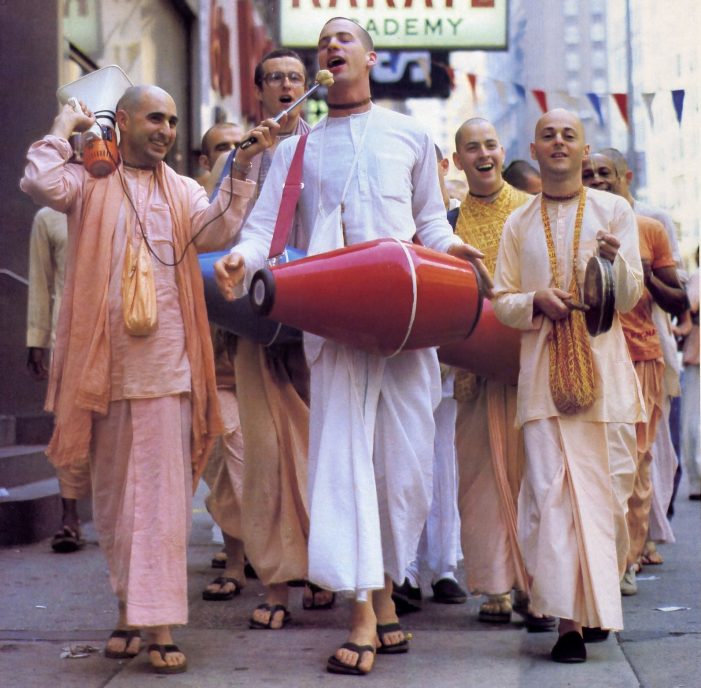
In this age of quarrel and hypocrisy, the only means of deliverance is chanting the holy name of the Lord. There is no other way. There is no other way. There is no other way.
